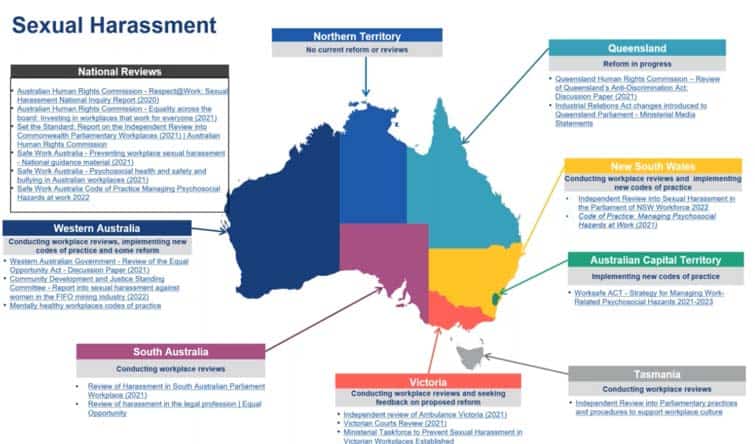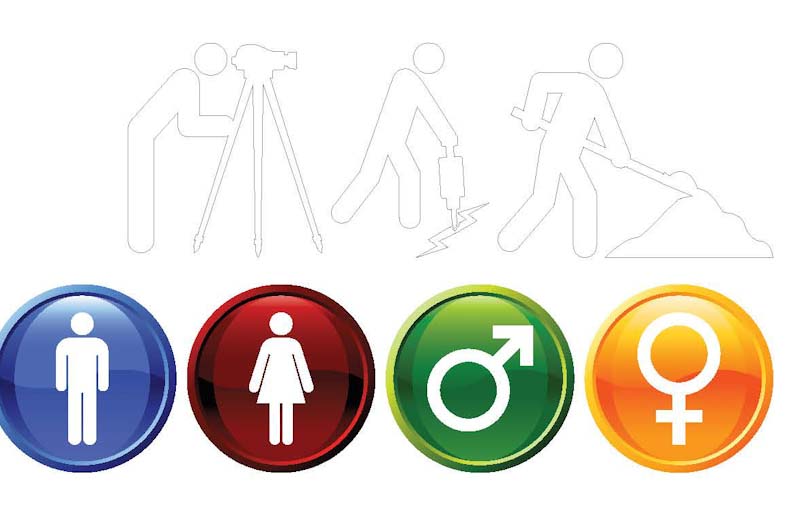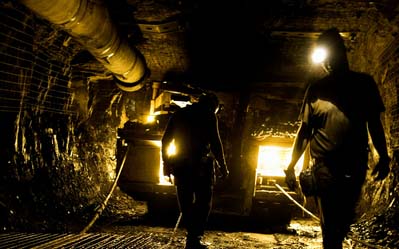Industrial Manslaughter was always going to generate some workplace safety marketing at some point. In this week’s Australian Financial Review (23 September 2022, page 23, paywalled), Inspectivity paid for a full-page advertorial promoting its data collection and analysis products. It mentioned that its products could help to reduce the risk of being prosecuted for Industrial Manslaughter. But what does this say about one’s customers and their attitude to providing safe and healthy workplaces if the avoidance of personal accountability is the ”hook” for the sale?
Category: mining
Australia’s mining sector can avoid becoming the next institutional pariah
Around a decade ago, parts of the Australian rail construction industry introduced the Pegasus Card. The intent was to have a single portal through which a worker’s competencies and eligibility to work could be verified. It evolved into the Rail Industry Worker Card in existence today. Pegasus remains in parts of the mining sector.
I was reminded of the Pegasus Card when I read the recent West Australian report into sexual harassment in the mining sector, Enough is Enough. One of its recommendations, Number 3, was that:
“The industry must explore ways to prevent perpetrators of serious sexual harassment simply finding reemployment on other sites and in other companies. This should involve:
– thorough exploration of an industry-wide workers’ register or other mechanism such as industry-wide accreditation, taking into account natural justice considerations and perhaps modelled on the Working With Children Card;…..
“industry-wide workers’ register”? Isn’t that what the Pegasus card helps to manage?
SafeWorkSA’s approach to psychological harm is as much as it can do but doesn’t have to be
The harm presented by working in Australia’s mining sector has been a concern for a long time. Over the last decade or two, the psychosocial harm from the same work has come to the fore. The occupational health and safety (OHS) responsibility sits clearly with the employers who, in Australia, are often well-resourced national and international corporations. Recently SafeWorkSA issued a media release entitled “Sexual harassment in mining sparks campaign“. SafetyAtWorkBlog took the opportunity to put some questions to the South Australia OHS agency, to which it has responded.
Webinar of insight and update
Recently 700 people registered for a webinar conducted by Herbert Smith Freehills on work health and safety reforms, primarily on psychosocial risks at work. These risks were presented in various inquiries into sexual harassment, fly-in fly-out work practices but also generated new regulations, guidances and codes.
Steve Bell spoke about the responses from occupational health and safety (OHS) regulators to these issues and said:
Major omissions from business perspective before the Jobs and Skills Summit
Next month the Australian government is conducting a “Jobs and Skills Summit“. Such consultative events have been held every so often for decades but usually after a new government is sworn in and after the previous one was in power for too long or lost its way. Such summits are seen as ways of reconnecting with disaffected and disempowered industry associations, trade unions and other organisations with the ear of the incoming government.
One of the most vocal industry associations is the Business Council of Australia. The BCA has existed since 1983. Its Wikipedia entry lists its large corporate membership, providing context to its policies and positions. On August 15 2022, its CEO Jennifer Westacott had an opinion piece, “What a Jobs Summit ‘win’ would look like“, published in the Australian Financial Review, but with a different headline. Workplace safety was mentioned in passing but is hiding in the subtext elsewhere.
‘Enough was Enough’ over a decade ago and the mining industry failed to act then
The recent report on sexual harassment at West Australian mine sites deserves national attention for several reasons. The stories are horrific, partly because many of us thought such stories were in the distant past. The fact that many are recent should shock everyone into action.
The report “Enough is Enough”is highly important, but its newsworthiness seems disputable. Some media have covered the report’s release but the newsworthiness, in my opinion, comes less from this one report but from the number of reports and research on sexual harassment, bullying, abuse, disrespect and more in the mining sector over the last twenty years that have done little to prevent the psychosocial hazards of working in the mining and resources sector and especially through the Fly-in, Fly-Out (FIFO) labour supply process.
New Hopkins book aimed at CEOs
Professor Andrew Hopkins‘ latest book “Sacrificing Safety – Lessons for Chief Executives” complements Queensland’s Board of Inquiry into the Grosvenor mine fire in which five workers were severely burnt, a significant workplace incident for which the company, Anglo American, will not be prosecuted. Hopkins explains that the Board of Inquiry chose not to investigate the organisational causes of the incident; a situation this book seeks to redress.
The book starts with a bang in the Introduction, with a paragraph that will stay with me for some time due to its blunt honesty:






